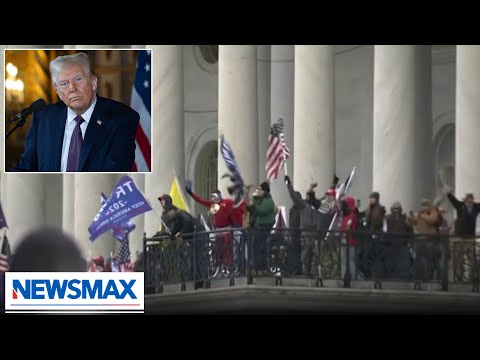There’s a lot of chatter going around about some serious topics in Washington, and it involves our lawmakers, some potential pardons, and a whole lot of legal sleuthing. Recently, a senior judicial analyst shared thoughts on what should happen if a member of Congress decided they wanted to play a bit too rough with the law. Tampering with witness testimony or, heaven forbid, destroying evidence are not just garden-variety mistakes; those are serious offenses that the Department of Justice (DOJ) would have to look into, no matter who is involved. The Constitution does provide some protections for members of Congress while they are doing official business, but those protections don’t cover them if they step outside the law.
The analyst emphasized that if evidence were tampered with or if someone tried to coax a witness into telling a fib, those actions would be treated like the serious crimes they are. It’s important that the DOJ gets involved to ensure law and order is upheld, and it wouldn’t matter who it was in Congress—the law is the law. Now, it seems the legal world is buzzing with a potential pardon from a newly sworn-in President Trump for a large group of individuals tied to the events of January 6. This could create what the analyst called a “jurisdictional nightmare” if not handled properly. It would be much more orderly to approve individual pardons rather than a massive, blanket one that doesn’t specify names.
Speaking of which, the presidential pardon process isn’t as straightforward as it sounds. With approximately 1,600 people potentially on the list, it raises the question: who exactly is going through all those names? It’s a far cry from how President Biden handled pardoning his son without consulting the DOJ. Instead, a careful review should be performed so that President Trump doesn’t accidentally let someone off the hook who genuinely deserves a reckoning, like the Capitol police officer involved in a significant incident during the unrest.
Now, let’s swing over to another hot topic on the political grill for discussion: the FISA Section 702, which has been drawing criticism for potentially infringing on Americans’ rights. It allows our intelligence community to spy on folks without needing a warrant—a little too Big Brother for comfort for some. Interestingly, the analyst pointed out that Tulsi Gabbard had taken a stand against this invasive practice before her possible new role as director of National Intelligence. However, it seems she may have shifted her stance, presumably in an effort to earn votes. It sparked quite a reaction, as the judge expressed disappointment over what seemed to be a flip-flop on an important issue regarding Americans’ rights.
In essence, this is a story that encompasses a critical area of politics where laws and ethics collide. With so much on the line, every decision made now can echo for years down the line. Whether it’s maintaining accountability in Congress or ensuring our rights aren’t quietly overlooked by the intelligence community, it’s clear that all eyes are on Washington. As this political drama unfolds, it’s plain to see that the stakes are high, and the roads ahead might just get a little bumpier. One thing’s for certain: if any pardons are handed out, they’ll need to be done with a good dose of vigilance—and perhaps a sprinkle of common sense.



